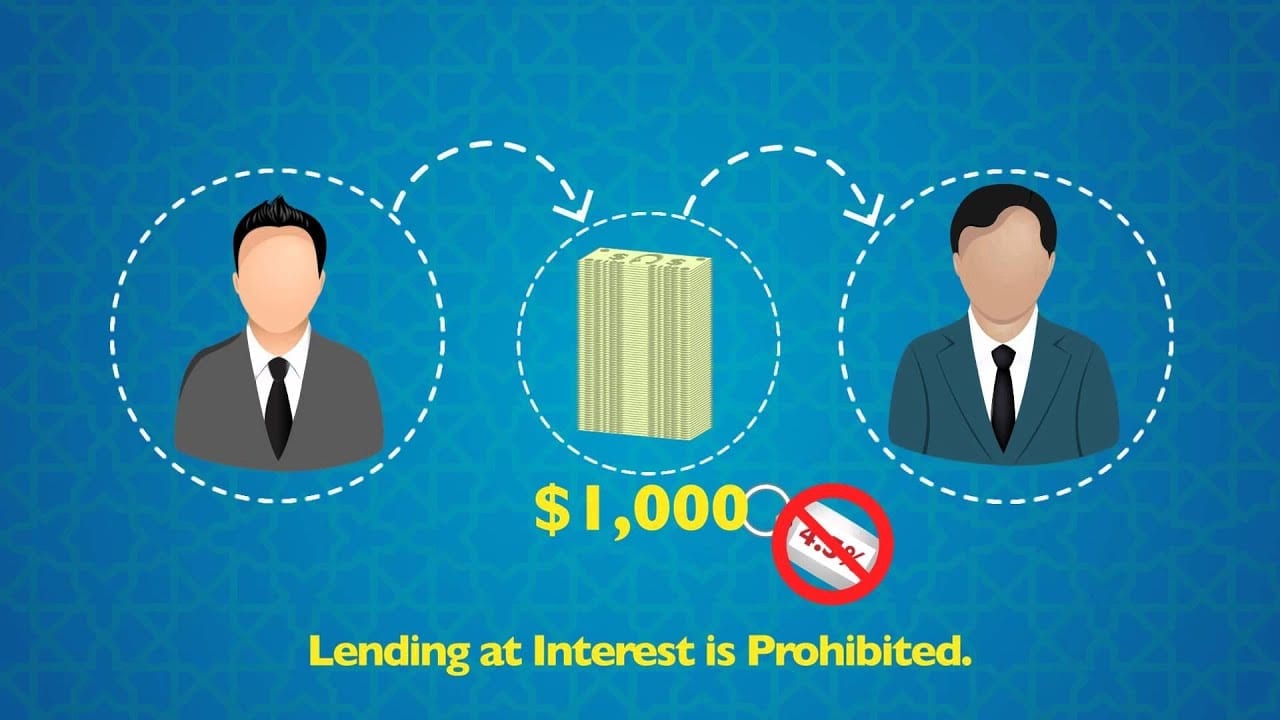The Difference Between an Islamic and Conventional Mortgage

Islamic home financing – once non-existent in America – is now widely available. Not only is it accessible, it has become a competitive alternative to conventional home financing. Islamic mortgages, which are not actually a mortgage loan at all, are now an affordable option for those who wish to achieve homeownership in an equitable manner without compromising their values.
How is an Islamic Mortgage Different than a Conventional Mortgage?
The key difference between Islamic mortgage and conventional ones is the type of relationship at the heart of the transaction.
There are several types of sharia compliant mortgages that Islamic financial institutions could use, but the most suitable one is based on a concept called Musharakah, or partnership, and that is what Guidance Residential based its model of Islamic financing upon.
A conventional mortgage is a loan from a creditor to a debtor, whereas the approach used in Guidance Residential’s Islamic mortgages is completely different: It is a partnership between co-owners.
Riba (Interest) Free
Among the key differences between a Muslim mortgage and a conventional one is the lack of riba, or interest.
According to shariah law, lending money to profit from any commercial or investment activity including the financing of real estate is not an acceptable method of commerce. Muslims may not benefit from interest charged, nor may they charge interest. With riba (or interest) prohibited, that makes conventional mortgages problematic.
The most obvious reason for the prohibition on charging interest is that in Islam, a loan is meant to be a form of charity – an opportunity for one person to help another who experiencing a difficult situation. The lender should only expect to be repaid the exact amount they lent. A loan is not a way to earn money.
It is also not permissible in under sharia law to buy or sell something that has no intrinsic value. A loan with interest is essentially paying for money with more money. Money has no intrinsic value, so it can’t be purchased. (This rule enhances stability in the market for benefit of the community.)
With a mortgage loan arrangement so clearly unacceptable according to Islamic financial guidelines, Guidance Residential developed a home financing program on an entirely different foundation: a partnership.
Co-Owner vs Lender
While interest-bearing loans are not allowed under Islamic financial law, joint business ventures are permitted. So Guidance Residential developed a co-ownership model of Islamic mortgage that is uniquely suited for American Muslim home buyers.
A co-owner is very different from a borrower. A borrower, or debtor, is beholden to the lender, so they have little power in an inequitable relationship. (This unequal relationship is understood in the common saying, “You owe me!”) The debtor faces nearly all of the risks alone, bearing the brunt of misfortunes such as natural disasters, eminent domain or foreclosure. A partner, on the other hand, is an important and valued member of an equitable relationship. Risks are shared, as are certain profits, such as insurance payouts; but the profit if the home is sold belongs to the homeowner alone.
The Co-Ownership Model
Guidance Residential’s halal mortgages are based on an Islamic financial concept known as “Musharakah Mutanaqisa” or “Diminishing Partnership.”
When a home buyer decides to bring Guidance in as a co-owner in a home, the rights and responsibilities of both parties are spelled out in the Co-ownership Agreement. The customer and Guidance each own shares in the home. Guidance acquires its co-ownership stake through a Limited Liability Company (LLC) specifically created for this purpose.
How the Co-Ownership Model Works
Since both parties are co-owners, they would normally both have the right to occupy the property. However, in this transaction, Guidance gives the customer the exclusive enjoyment and use of the whole property. In exchange for this exclusive right, the customer pays Guidance what is known as a Profit Payment.
This Profit Payment is part of the customer’s monthly payment to Guidance Residential. The other part, called the Acquisition Payment, allows the customer to gradually buy out Guidance Residential’s shares of the home in monthly installments. Together, these two amounts make up a predictable monthly payment that is competitive with the monthly payments in a conventional mortgage.
As the customer makes Acquisition Payments to acquire a further share in the property, Guidance’s ownership share decreases. This creates the “declining balance” nature of the program.
Benefits of the Co-Ownership Model
Many other differences exist between an Islamic mortgage and a traditional mortgage.
- With conventional loans, homeowners are typically left on their own in the case of a natural disaster like a hurricane or tornado. If the property were to be destroyed, they are be responsible for repaying their mortgage loan in full to the bank. On the other hand, with Guidance Residential, we share this risk as co-owners.
- Eminent domain is something few people ever expect to face, so it takes affected homeowners by surprise. This is when the government decides to take a property for public use. The government is required to compensate the homeowner, but the amount paid does not always cover the mortgage amount. Guidance Residential shares the risk in this scenario as well.
- Foreclosure is something no one likes to think about. With conventional mortgages, if a borrower defaults and the home sale doesn’t cover the loan amount still owed, in many states the bank or lender can – and will – come after your personal assets to pay the difference. With Guidance Residential, on the other hand, if the proceeds from the home’s sale do not cover our portion of the property, we do not pursue their personal assets. The customer is better protected under this arrangement.
- Late payments are also limited. In conventional mortgages, the bank may immediately apply late payment fees to each payment that is missed—typically about 5% of the payment owed. On a $2,500 mortgage payment, that would equal $125 each month you are late. Only a portion of that goes to the administrative expenses of reaching out to you for the payment; the rest is profit. In other words, the bank profits from your hardship. With Guidance Residential, if you make a payment late, you pay only a small fixed fee to cover administrative costs of reaching out to you. We do not charge a percent of your payment, and we don’t profit from our customers’ difficulties.
- Similarly, unlike some banks, we also do not charge prepayment fees when homeowners wish to pay off their contracts early. We are happy for you, and we wish you the best.
At its essence, Guidance Residential’s partnership model of home financing is a service provided in accordance with Muslim beliefs in order to fill a need. It is governed by Islamic finance’s common-sense rules that are intended to benefit the community and protect vulnerable individuals. Unlike with a traditional mortgage loan, the goal is not to profit from our customers to the max; it is rather to help our customers fulfill a dream and care for themselves and their families without compromising their values. This is why you will find that our practices to be respectful and customer-friendly.
It is an amana, or trust, to serve you.
About Guidance Residential
There was a time when faith-conscious Muslim American families did not have a sound alternative to a conventional home mortgage that was compliant with both U.S. and Islamic legal systems. The visionaries of Guidance Residential wanted to change that.
In 1999 the company embarked on a multi-million dollar research and development project involving 18 law firms and six of the world’s leading Shariah scholars to provide an authentic, shariah compliant model of Islamic home financing for Muslim American consumers.
The Declining Balance Co-ownership Program was developed, and in 2002, Guidance Residential began operation in three states, offering home financing in a sharia compliant way. A new era in the home buying and refinancing experience for Muslim Americans began.
Today, Guidance Residential continues growing and improving with each passing year, offering an equitable and competitively priced alternative to conventional mortgages available to both Muslim and non Muslim customers alike, while remaining true to our authentic goals and value. We are honored to remain the #1 Islamic Home Finance Provider® in the United States, with more than 40,000 families assisted over more than 20 years.
Learn more and get started on your home finance journey today.
Your Guidance Residential Account Executive is here to help with any questions. Looking to refinance or purchase? Have a friend or family member who is looking for a home? Call 1.866.Guidance, or start an application today.
Learn more about Islamic Home Financing:
- What Is an Islamic Mortgage and How Does It Work?
- Hidden Risks: The Pros and Cons of a Conventional Loan
- Are Guidance Residential Islamic home mortgages really halal?
Originally published in December 2020, updated June 2024.




